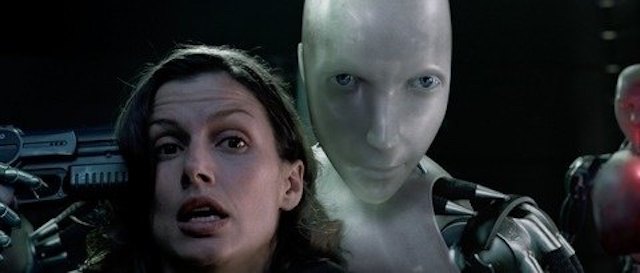For one hairy moment, it seemed like Facebook’s latest foray into artificial intelligence (AI) had unleashed a monster—of the speaking variety!
And one capable of turning on its human masters.
But, nope—nothing more than tabloid sci-fi sensationalism behind this yarn.
The Scoop:
Yes, it’s true that the social media giant dabbles in artificial intelligence for the purpose of expanding chatbot capabilities; but, it’s not true that their newest chatbots can secretly communicate with each other (in their own language) to plot a takeover of the planet—at least not yet!
What Facebook researchers did manage to develop were chatbots with the (rudimentary) ability to negotiate with each other over the ownership of certain virtual items.
They were programmed with linguistic algorithms and left to their own devices. When researchers checked back, it appeared that the bots had invented their own language and were…well, going at it.
And that’s where the story went into a tailspin in typical media hype—much ado about nothing.
As technology site, Gizmodo, put it: “In their attempts to learn from each other, the bots thus began chatting back and forth in a derived shorthand—but, while it might look creepy, that’s all it was.”
That said…
Artificial intelligence and human-bot communication is where we’re headed in this year of technological wizardry.
My kids (8 and 10) love fooling around with Siri on my iPhone. (Don’t we all?) She gets asked everything from the latest baseball scores to more personal questions about “her” love life.
Whereas Siri’s pre-programmed answers are cute and limited at this juncture in time, a more sophisticated inter-communication functionality is probably not that far off—not to mention autonomous cars and even robotic “super soldiers” with the capability of blitzing us all.
Where are we headed?
In my recently published book, Do It Anyway: Deep Spirituality Meets Real Life, I reflect on what a couple of commentators say about the future of humankind:
“In a 2006 New York Times article, Merely Human? That’s So Yesterday, Ashlee Vance quotes the futuristic hypothesis of Ray Kurzweil (who coined the term Singularity), as he discusses:
‘…a time, possibly just a couple of decades from now, when a superior intelligence will dominate and life will take on an altered form that we can’t predict or comprehend in our current, limited state. At that point, human beings and machines will so effortlessly and elegantly merge that poor health, the ravages of old age, and even death itself will all be things of the past.’ Kurzweil continues, ‘We will transcend all of the limitations of our biology. This is what it means to be human—to extend who we are.’ [i]
Katherine Hayles, in How We Became Posthuman, echoes many of Kurzweil’s projections:
‘In the posthuman, there are no essential differences, or absolute demarcations, between bodily existence and computer simulation, cybernetic mechanism and biological organism, robot technology and human goals…Humans can either go gently into that good night, joining the dinosaurs as a species that once ruled the Earth but is now obsolete, or hang on for a while longer by becoming machines themselves. In either case…the age of the human is drawing to a close.’ [ii]
Sh*t!”
From where I stand, the nub of it all lies in the rate at which nano, bio, and every other form of technology and AI are expanding today. Will we end up living as cyborgs and robotic war goons running amok—on a planet unrecognizable from what it once was?
Who knows? But it’s one scary and dystopian possibility.
Or can we pull it back so that the spiritual and moral evolution of humankind and consciousness have (collectively) caught up with the technology? At least to a point where we have some sense of who and where we are as a human species or—dare I say it?—spiritual beings still evolving.
As I put it in the same chapter:
“I believe artificial intelligence is an unstoppable, rapidly expanding science. Tons of money and resources are being invested in it daily. I’m not going to bury my head in the sand and deny this. Nor do I want to. We are endowed with prodigious intellectual gifts and creative potential. We need to use these gifts in the service of true human dignity, equality, and flourishing. Unchecked artificial intelligence can lead to self-indulgence, narcissism, and isolation if it is not used thoughtfully to deepen the spiritual communion of humankind with the whole created order.”
No, I don’t believe that our technological future is apocalyptically scary. I have hope that much needed reality-checks will kick in when they need to. Even if it is via goofball media hype on gibberish jabbering bots.
~
References:
[i] Merely Human? That’s So Yesterday, Ashlee Vance, The New York Times, June 12, 2010.
[ii] N. Katherine Hayles, How We Became Posthuman: Virtual Bodies in Cybernetics, Literature, and Informatics (Chicago, University of Chicago Press, 1999) pp. 3, 283.
~
Author: Gerard A. Murphy
Image: iRobot
Editor: Leah Sugerman
Copy Editor: Khara-Jade Warren
Social Editor: Khara-Jade Warren











Read 0 comments and reply